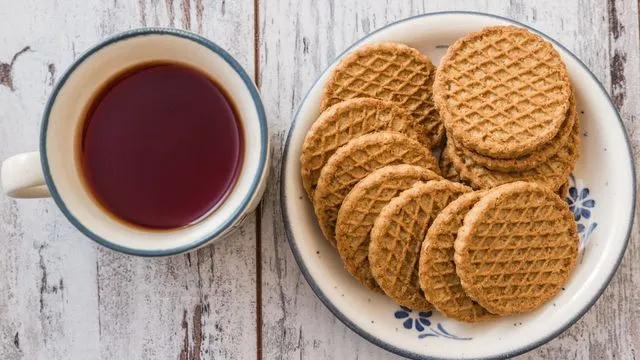- By Prerna Targhotra
- Mon, 06 May 2024 09:25 AM (IST)
- Source:JND
Foods To Never Combine With Tea: As soon as we hear the word 'tea', a wave of relaxation circulates through our body, right? Well, who doesn't loves tea! Most of us get through our daily tasks by drinking cups of our favourite tea. A cup of tea paired with a variety of our favourite treats is a delightful experience. Tea is one of the most popular beverages in India, enjoyed by everyone. Biscuits, samosas, and pakoras, as well as namkeen and other snacks, are served with tea to improve its taste and flavour. However, many health experts believe that drinking tea with a variety of foods might be damaging to your health. As a result, we have prepared a list of items you should never consume with tea.
Foods To Never Combine With Tea
Vegetables
It is not recommended to drink tea with green vegetables. Tea contains tannins and oxalates, which can limit iron absorption. Green vegetables and tea can bond with iron, preventing its absorption in the body.
Lemons
The idea of consuming lemons with tea can give you jitters. When consumed in excess, lemons can induce pain, increase heartburn symptoms, and irritate the stomach, resulting in nausea and bloating.
ALSO READ: Expert-Recommended Tips To Avoid Dry Eyes In An Air-Conditioned Workspace
Nuts
-1714706472594.jpg)
Foods To Never Combine With Tea (Image Credits: Canva)
Consuming nuts with tea might have a negative impact on health. When taken with nuts, the component tannin in tea can interfere with nutritional absorption.
Besan
Tea is a common accompaniment to flour or besan treats such as nankeen and pakoras. However, this dietary combination might cause a number of digestive difficulties, including acidity, constipation, and bloating.
Turmeric
Turmeric is an Indian spice that includes curcumin, an anti-inflammatory and immune-boosting compound. However, you should avoid adding turmeric to your tea since the chemical compounds in tea and turmeric might affect the digestive system.
ALSO READ: 5 Easiest Ways To Increase Your Water Intake In Summers
(Disclaimer: This article is for informational purposes only. It is not a substitute for professional advice, diagnosis or treatment.)

